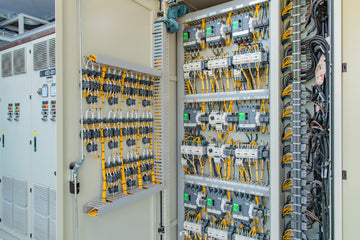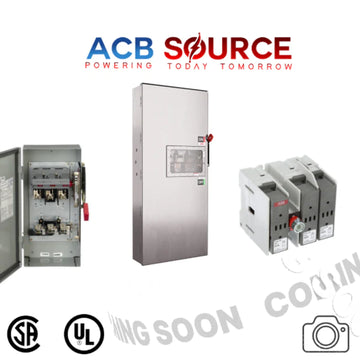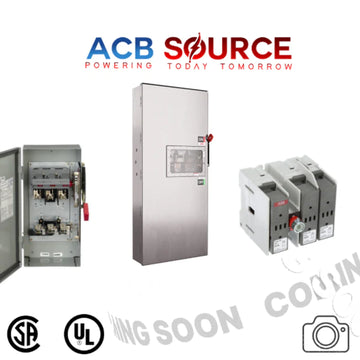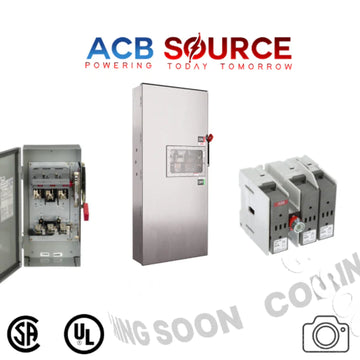In the realm of industrial automation, the role of control panels is paramount. These centralized hubs of control form the backbone of manufacturing processes, ensuring seamless operations and system efficiency. As businesses increasingly adopt automation solutions, the need for trained personnel to operate and maintain industrial control panels becomes imperative. This article delves into the basics of industrial control panels, highlighting the essential aspects that training programs should cover to empower operators and maintenance teams.
The Significance of Industrial Control Panels
- Centralized Command Hub:
Industrial control panels serve as centralized command hubs, allowing operators to monitor and control various components of a manufacturing or industrial process from a single location.
- Integration of Electrical Devices:
These panels integrate an array of electrical devices, including switches, relays, meters, and programmable logic controllers (PLCs), to facilitate the control and automation of machinery and processes.
- Safety and Emergency Protocols:
Control panels play a crucial role in implementing safety measures and emergency shutdown protocols, contributing to a secure working environment and preventing potential hazards.
- Scalability and Adaptability:
Designed for scalability, industrial control panels can adapt to the evolving needs of a facility. They allow for the integration of new components or the expansion of existing systems.
Training Essentials for Industrial Control Panels
- Fundamentals of Electrical Systems:
A foundational understanding of electrical systems is essential for anyone working with industrial control panels. Training programs should cover basic electrical principles, circuitry, and the components commonly found in control panels.
- Introduction to Control Panel Components:
Trainees should be familiarized with the key components housed within industrial control panels. This includes switches, circuit breakers, relays, contactors, indicators, and PLCs. Understanding the purpose and function of each component is crucial for effective control and troubleshooting.
- Interpretation of Schematics and Diagrams:
Proficiency in reading and interpreting electrical schematics and diagrams is a fundamental skill. Training programs should emphasize the ability to understand and follow the logical flow of the control panel's wiring and connections.
- Basic Programming Skills for PLCs:
Many industrial control panels incorporate PLCs for automation. Training should cover basic programming skills for PLCs, enabling operators to modify and troubleshoot programs as needed for specific processes.
- Safety Protocols and Procedures:
Safety is a top priority in industrial settings. Training programs must educate personnel on safety protocols related to control panel operation, including emergency shutdown procedures, lockout/tagout practices, and compliance with industry regulations.
- Hands-On Practical Exercises:
Practical hands-on exercises are invaluable for reinforcing theoretical knowledge. Training should include simulations and hands-on activities that allow participants to apply what they've learned in a controlled environment.
- Troubleshooting Techniques:
Equip trainees with effective troubleshooting techniques. This includes the ability to identify and rectify common issues within the control panel, ensuring minimal downtime and efficient problem resolution.
- Integration with Human-Machine Interface (HMI):
Many modern control panels feature Human-Machine Interface (HMI) systems. Training should cover the integration and operation of HMIs, including navigation, data interpretation, and interaction with the control panel.
- Maintenance Practices:
Understanding routine maintenance practices is essential for prolonging the lifespan of control panels. Training programs should cover preventive maintenance tasks, inspections, and the identification of components that may require replacement.
- Documentation and Record Keeping:
Stress the importance of maintaining accurate documentation. This includes keeping records of panel configurations, modifications, maintenance activities, and any changes made to the control system.
Implementing Effective Training Programs
- Tailored Training Modules:
Customize training modules to align with the specific control panels used in the facility. Tailored programs enhance relevance and address the nuances of the equipment in use.
- Certification Programs:
Consider implementing certification programs for personnel who complete control panel training. Certifications provide a tangible recognition of skills and competence, boosting confidence and credibility.
- Regular Refresher Courses:
Industrial control panel technology evolves. Regular refresher courses ensure that personnel stay updated on the latest advancements and maintain proficiency in their roles.
- Integration with On-The-Job Training:
Combine classroom learning with on-the-job training opportunities. Practical experience reinforces theoretical knowledge and allows trainees to apply their skills in real-world scenarios.
Conclusion
Understanding the basics of industrial control panels is foundational for professionals in the field of industrial automation. Training programs that cover electrical fundamentals, component knowledge, safety protocols, and practical skills contribute to a skilled and confident workforce. By investing in comprehensive training, businesses ensure that their personnel are well-equipped to operate, maintain, and troubleshoot industrial control panels, ultimately enhancing overall operational efficiency and safety in industrial settings.







